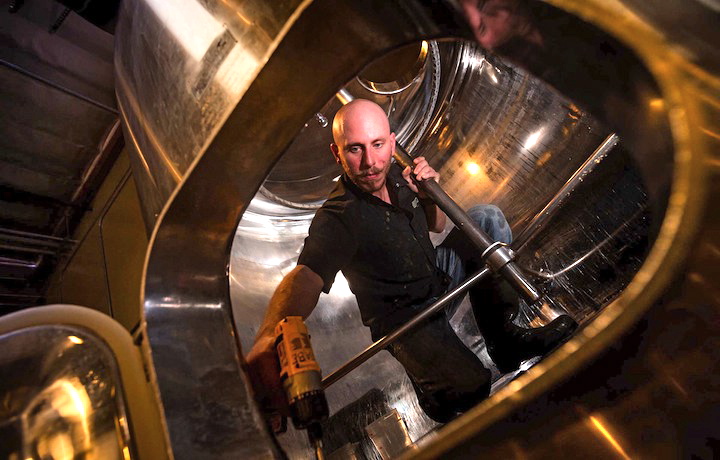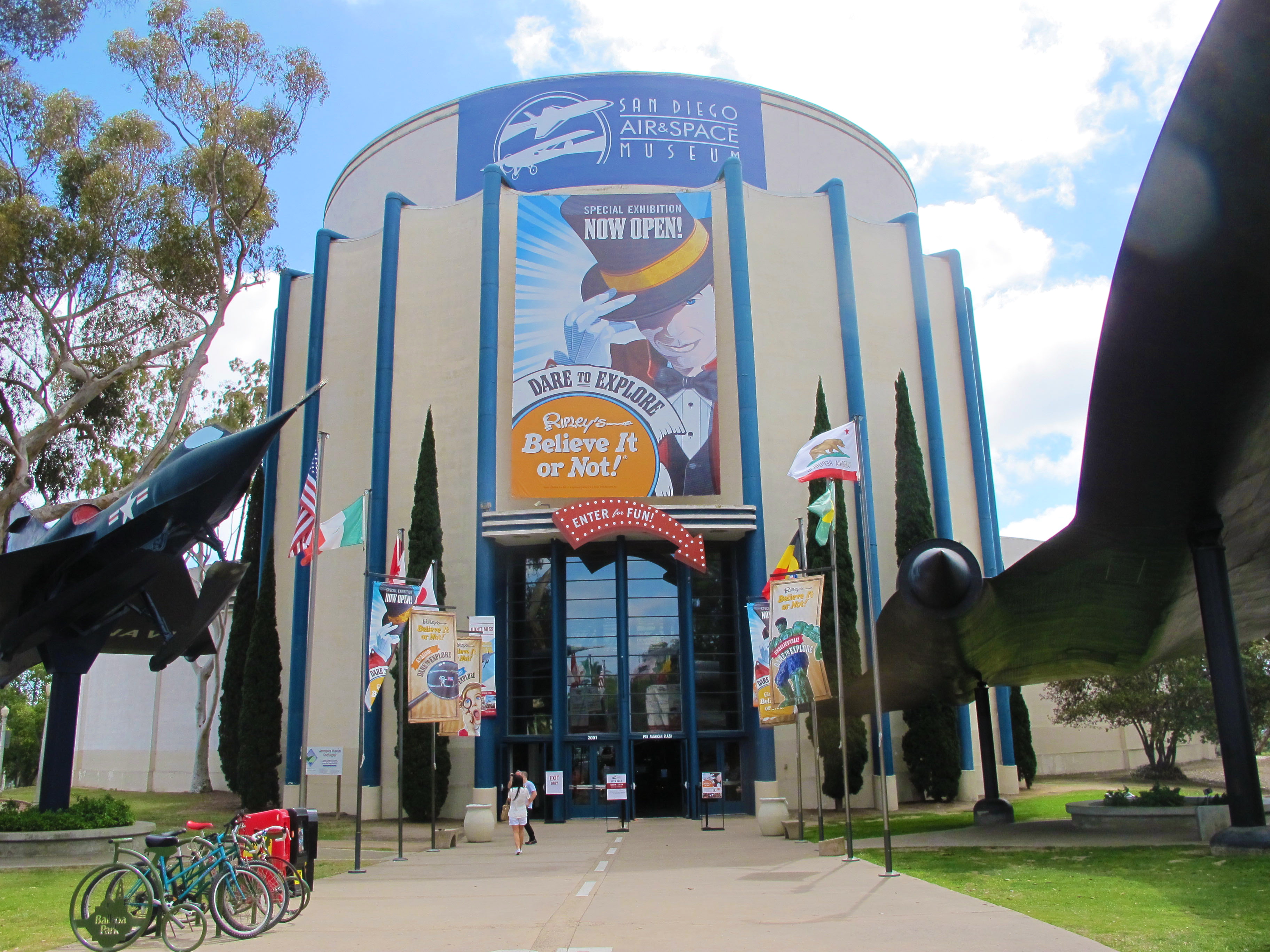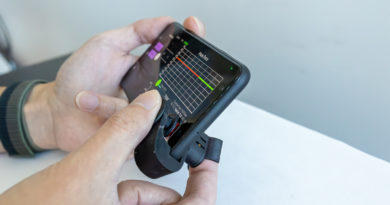Daily Business Report-Dec. 29, 2014
UC San Diego alumnus George Thornton own The Homebrewer in North Park, a supply store and education resource for beginning and advanced homebrewers.
UC San Diego Alumni Help Lead
San Diego’s Growing Microbrew Industry
George Thornton made his first batch of beer at his sister’s apartment, using the spare bedroom to store the fermenting ale. Today, the UC San Diego alumnus is the owner of The Homebrewer in North Park, a supply store and educational resource for both beginning and advanced homebrewers. Here, customers can choose from a variety of hops, yeast, grains, additives and equipment, as well as participate in classes taught by fellow homebrewers. Next year, Thornton will open a small production brewery and tasting room next door.
Thornton is one of many UC San Diego graduates involved in the booming craft beer industry in San Diego. Many of the region’s breweries—from Ballast Point and AleSmith to Rough Draft and Benchmark Brewing—got their start from homebrew operations.

Jeff Silver, a 1994 UC San Diego graduate, opened Rough Draft Brewing Company in 2012 after a career in finance and nearly 20 years of homebrewing as a hobby.
“We have a very strong homebrew community in San Diego,” said Silver. “I think that’s one of the reasons the industry has thrived here.”
President Jimmy Carter paved the way for the craft beer revolution in 1978 when he signed H.R. 1337 into law, allowing any adult to produce up to 100 gallons of beer or wine per year for local consumption. Not long after came the rise of homebrewing operations, some of which grew into commercial craft breweries. In San Diego, Karl Strauss Brewing Company became the city’s first commercial craft brewery when it opened in 1989.
Since then, the region’s craft beer industry has grown exponentially. Today, there are nearly 100 breweries throughout the county. A study last year by the National University System Institute for Policy Research estimated that in 2011, San Diego craft breweries generated $299.5 million direct regional economic impact, as well as $680.9 million in sales. To put that number in perspective, Comic-Con International generates a $180 million regional economic impact, the report stated.
Two UC San Diego alumni have played a significant role in the local rise of craft brewing: Yuseff Cherney, a 1992 graduate, and Chris White, a 1996 doctoral graduate. Cherney and White met on campus, when Cherney was teaching a homebrewing class at the Crafts Center and White, a graduate student in the department of chemistry and biochemistry, attended one of his first classes. They collaborated as homebrewers before each started their own projects.
White founded White Labs in 1995 to manufacture yeast cultures and provide fermentation services to brewing, wine and distilling industries. The enterprise has given San Diego brewers access to a variety of fresh yeast, encouraging experimentation on the traditional styles of beer.
Cherney teamed up with Home Brew Mart’s Jack White to open Ballast Point Brewing and Spirits in 1996 — one of the region’s earliest craft breweries. From a “back room” brewery out of Home Brew Mart, Ballast Point has expanded to a larger production facility in Scripps Ranch and has opened a new brewery, restaurant and tasting room in Little Italy.
ResMed Wins Patent Victory
Against Chinese Competitor
San Diego-based ResMed has won a key victory in a patent infringement case against a Chinese medical device manufacturer.
The International Trade Commission ruled just before Christmas that sleep apnea masks made by BMC Medical Co. Ltd. infringe ResMed’s patents. The independent federal agency prohibited BMc from importing, advertising or selling four mask models in the United States.
“Changing lives with every breath is the foundation of ResMed’s business. That focus driives our patient-centric approach to research and development. It’s why our products are the highest quality and the most comfortable, and it’s why we vigorously protect our patent portfolio,” said David Pendarvis, ResMed chief administrative officer and global general counsel.
ResMed has a portfolio of more than 5,000 patents, pending patent applications and protected designs on flow generators, humidifiers and masks relating to sleep therapy.
— Times of San Diego
Channel Surfing
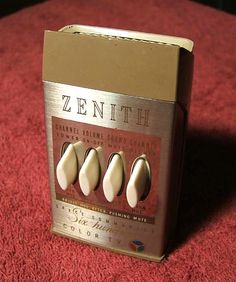
The reliable TV remote control, a crucial labor-saving device for couch potatoes, was unveiled this month in 1957. Robert Adler of the Zenith Corporation received a patent for a mechanical unit that used a striker and four small aluminum chimes to generate ultrasound. The ultrasounds produced controlled on and off, and channel and sound up and down. There had been remotes before, but they were attached to the receiver by an awkward cord. Adler’s remote eventually incorporated electronically generated ultrasound, and was in use until the early 1980s. Today’s remote controls use infrared technology to operate the nation’s television sets, sold in nearly 28,000 radio, TV and electronics stores across the country.
— Profile America/U.S.Census Bureau
Study Shows Mice Passing Down
Drug Benefits to Offspring
Scientists at the Scripps Research Institute in La Jolla were able to improve symptoms of a fatal brain disease in mice, even in offspring not directly treated with any drugs.
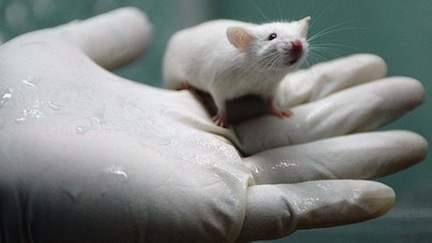
The researchers relied on epigenetics, the changes in gene expression brought on by environmental factors like diet, stress, or in this case, a drug. Scientists know parents can pass down those gene expression modifications to children, but the effect is usually associated with bad outcomes.
“The classic example is the Dutch famine at the end of World War II,” said Scripps neuroscientist Elizabeth Thomas, co-author of the new study.
Research has shown that pregnant women who starved in German-occupied parts of the Netherlands were more likely to have children susceptible to obesity, diabetes and even schizophrenia.
But for a new study, Thomas and her colleagues were able to produce a positive cross-generational effect. They gave a drug to mice with Huntington’s disease, a fatal brain condition.
As expected, these mice responded well to the drug. Disease onset was delayed. And when symptoms did appear, they weren’t as severe.
But the researchers also saw improvements in offspring who didn’t take the drug at all. They appeared to inherit the drug’s benefits through their parents.
“Compared to offspring of parents who were not treated, they did much better,” said Thomas.
Huntington’s patients have a 50 percent chance of passing the disease down to their children, so any cross-generational improvement is significant. However, Thomas says more research is needed to know if such drugs produce a similar effect in humans.
“Typically, one thinks of these trans-generational effects as being negative,” said Thomas. “Our study was really interesting in the fact that we saw beneficial effects.”
— KPBS
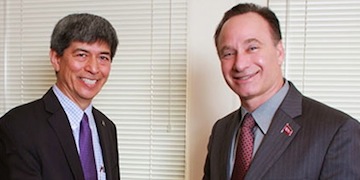
SDSU Partners With a Baja California University
San Diego State University is partnering with CETYS Universidad in Baja California for a new, two-prong program — Business in the Global Marketplace and International Entrepreneurship.
The program, designed by SDSU and CETYS business faculty, will be available by fall of 2015 and will offer CETYS students a certificate for completing a series of courses taught by SDSU faculty at CETYS. It is entirely self-supporting, paid for by CETYS, and the first program of its type in the region.
Concentrations at CETYS University allow students to take four to six courses at a foreign university and obtain additional skills and international competencies within a specific area.
“This option allows students to graduate CETYS with an added value to their degree; it is an excellent opportunity for border students, as it allows them to specialize in key areas of business and be more competitive in a global era,” said CETYS President Fernando Leon Garcia.
CETYS and SDSU have partnered over several decades, exchanging faculty and students in innovative programs which has enhanced education on both sides of the border.
“We are looking at two institutions who value entrepreneurship and international programs. The program that we inaugurate today is really another significant step in building both a binational partnership between our universities, but also a broader binational partnership in this region,” said SDSU President Elliot Hirshman.

Safeway Sells $830 Million in
Property to Carlsbad Developer
Safeway Inc. has announced the sale of shopping center and real estate development assets worth $830 million to Carlsbad-based Terramar Retail Centers LLC.
The properties are owned by Safeway’s subsidiary Property Development Centers LLC and consist of 11 completed retail shopping centers, nine retail shopping centers under construction and five projects in other phases. The centers and projects are located predominantly in California and Hawaii.
Safeway undertook the sale of the properties in connection with its merger with Albertsons, which was announced in March and is expected to close in January.
In November, Property Development Centers opened La Costa Town Square, a new Vons-anchored retail center totaling 285,000 square feet, in Carlsbad’s La Costa neighborhood.
Terramar has 24 existing properties with over 700 tenants and 3.4 million square feet. Safeway operates Safeway, Vons, Pavilions, Randalls, Tom Thumb and Carrs stores.
— Times of San Diego

